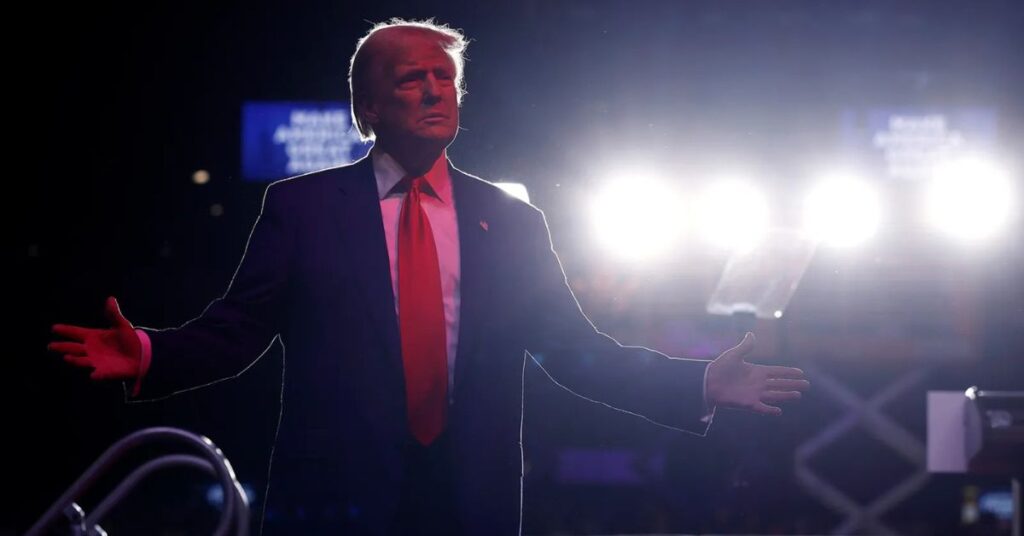In a move that highlights the ongoing debate over presidential term limits, Representative Dan Goldman from New York is preparing to introduce a resolution. This resolution aims to reaffirm the provisions of the 22nd Amendment, which limits U.S. presidents to two terms in office.
The motion is specifically directed at addressing recent remarks made by former President Donald Trump, who has humorously suggested the possibility of serving more than two terms.
While these comments may have been in jest, Goldman’s resolution seeks to ensure that no ambiguity exists regarding Trump’s eligibility for future presidential terms.
Understanding the 22nd Amendment
The 22nd Amendment, ratified in 1951, was introduced after Franklin D. Roosevelt’s unprecedented four-term presidency. It limits any individual from being elected president more than twice.

The amendment was designed to prevent any one person from holding too much power over an extended period, ensuring a balance in democratic governance.
Goldman’s resolution serves as a reminder of this constitutional provision, particularly in light of Trump’s recent remarks about potentially serving beyond two terms. The resolution emphasizes that no exceptions exist under the 22nd Amendment, even if the terms are non-consecutive.
The Democrat’s Resolution
On November 14, 2024, Representative Goldman announced his plan to introduce this resolution in Congress. Although the 22nd Amendment already clearly outlines presidential term limits, this motion holds symbolic importance.
It aims to send a strong message that any suggestion of extending presidential service beyond two terms—whether made seriously or humorously—will not be tolerated. The resolution is expected to face significant challenges in the Republican-controlled House.
However, Goldman may introduce it as a privileged motion, which would compel a vote and force Republicans to take a public stance on the issue.
Political Context and Implications
The political landscape surrounding this resolution is complex. While it is unlikely to pass in the current Republican-majority House, it represents a broader Democratic strategy aimed at safeguarding constitutional norms and preventing any potential erosion of democratic principles.
Trump’s comments about serving additional terms have been met with mixed reactions. While many Republicans have dismissed them as jokes, Democrats like Goldman view them as a serious threat to constitutional integrity.
By introducing this resolution, Goldman hopes to reinforce the importance of adhering to established rules and preventing any future attempts to undermine them.
Trump’s Remarks: Just Joking or Something More?
Former President Trump has repeatedly teased the idea of serving beyond two terms during various public appearances. His most recent comments were made during a meeting with House Republicans, where he joked about his supporters finding a “new solution” to allow him more time in office.
While many Republicans insist these remarks were made in jest, Democrats argue that such statements should not be taken lightly.
Goldman’s resolution underscores the seriousness with which these comments are being addressed and reiterates that there are no legal pathways for Trump—or any other president—to serve more than two terms under current law.
Frequently Asked Questions (FAQs)
What does the 22nd Amendment state?
The 22nd Amendment restricts U.S. presidents from serving more than two terms.
Can Donald Trump serve a third term?
No, Trump is constitutionally limited to two terms under the 22nd Amendment.
What impact will this resolution have?
The resolution is largely symbolic but reinforces existing constitutional limits on presidential terms.